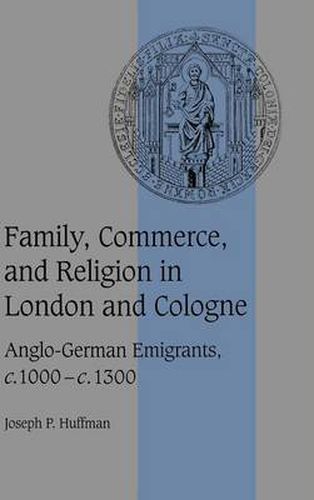Readings Newsletter
Become a Readings Member to make your shopping experience even easier.
Sign in or sign up for free!
You’re not far away from qualifying for FREE standard shipping within Australia
You’ve qualified for FREE standard shipping within Australia
The cart is loading…






This book explores the full range of social, economic, religious and cultural contacts between England and the German city of Cologne during the central Middle Ages, c. 1000 to c. 1300. A wealth of original archive material reveals an extensive network of English and German emigrants who were surprisingly successful in achieving assimilation into their new homeland. From beguines to English sterling, pilgrims to emigrants, crusaders and merchants to teachers, there existed a complex world of Anglo-German associations. The book therefore maintains the thesis that the Anglo-German nexus should be given a higher profile in current historiography on the Middle Ages, and that the book should stand as a contribution towards the reconfiguration of medieval history away from the boundaries created by modern political and intellectual categories. It will also encourage historians to reconsider their basic assumptions about what constituted ‘medieval Europe’.
$9.00 standard shipping within Australia
FREE standard shipping within Australia for orders over $100.00
Express & International shipping calculated at checkout
This book explores the full range of social, economic, religious and cultural contacts between England and the German city of Cologne during the central Middle Ages, c. 1000 to c. 1300. A wealth of original archive material reveals an extensive network of English and German emigrants who were surprisingly successful in achieving assimilation into their new homeland. From beguines to English sterling, pilgrims to emigrants, crusaders and merchants to teachers, there existed a complex world of Anglo-German associations. The book therefore maintains the thesis that the Anglo-German nexus should be given a higher profile in current historiography on the Middle Ages, and that the book should stand as a contribution towards the reconfiguration of medieval history away from the boundaries created by modern political and intellectual categories. It will also encourage historians to reconsider their basic assumptions about what constituted ‘medieval Europe’.